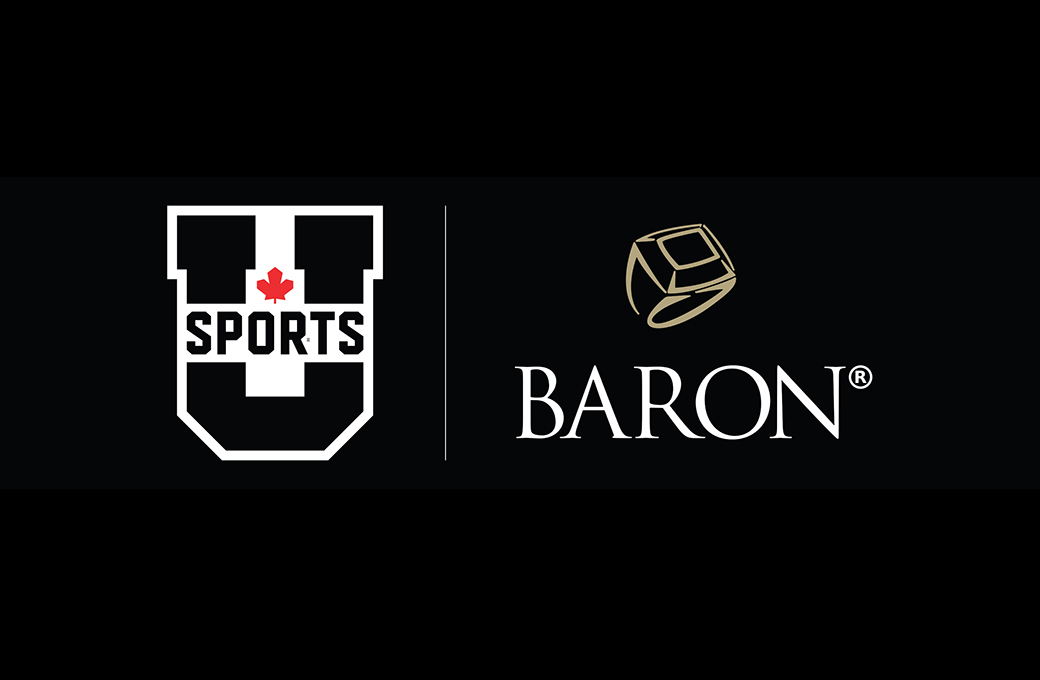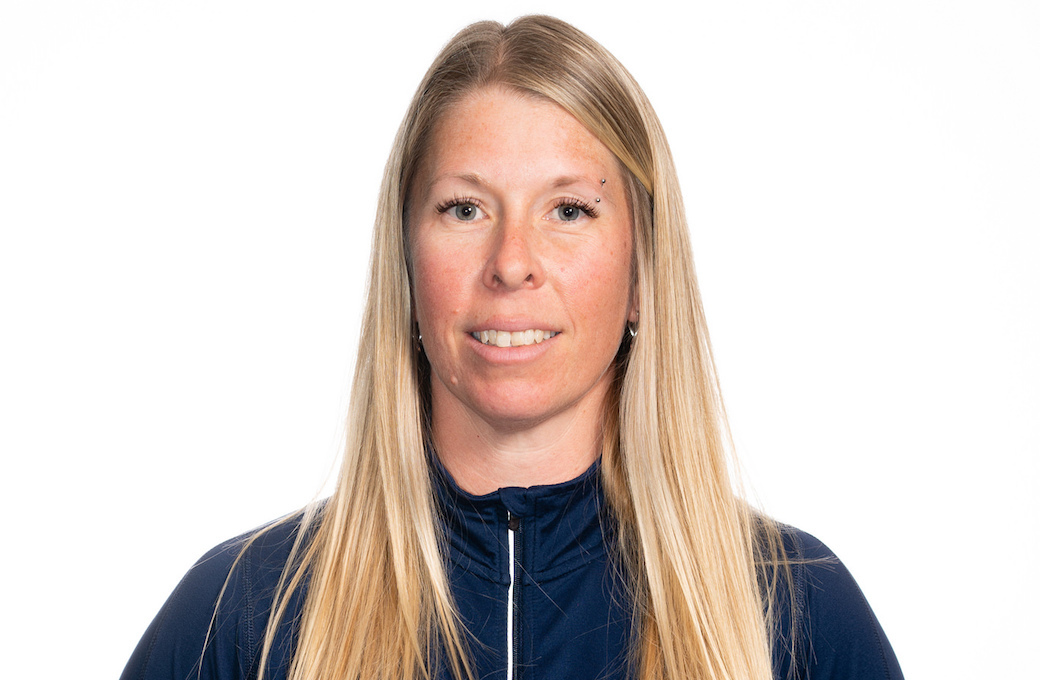Corporate
Baron Championship Rings named Exclusive Provider of championship rings and recognition jewelry for U SPORTS


U SPORTS Staff

U SPORTS sits down with one key athlete, coach, and staff member of each U SPORTS athletic program in our interview series “Getting to know…”
1. How did you get to your current position, and what do you enjoy most about our job?
On a whim, I moved to Victoria from Oakville, Ont. I worked part time helping as an assistant athletic therapist on field and in the varsity sports injury clinic. Three years later, I was hired as the head athletic therapist at UVic when the job was posted.
Each season there are many varsity events that I look forward to. From watching 10 parachutists jump out of a plane and land on the soccer field at Centennial Stadium to kick off the first home soccer game of the season, to hosting playoff events or national championships, or watching an athlete that we helped through a major injury play at the national or international level. It’s always wonderful to see the athletes come in as a wide-eyed, first-year student-athletes, then 4-5 years later graduate as mature successful confident adults ready to take on the next challenge.
2. Who has had the most influence on your career?
As a student athletic therapist, I was placed at McMaster University with Dave Murray, head athletic therapist at that time. I spent many hours observing and helping him treat the McMaster athletes in the varsity clinic. I was able to learn from him and learn how their varsity medical team worked together to keep athletes in competition. I was then able to work with Chris Puskas, who at that time was the head athletic therapist with the Hamilton Tiger-Cats. I was able to see that next level of sport competition in Canadian football and how Chris successfully ran and was part of a team of practitioners who ensured professional football players through training camp, pre-season, regular season and postseason play.
3. What is your greatest sporting moment or achievement?
Being offered the head athletic therapist position and all that that brings with it for the University of Victoria. For the past 11 years, I have travelled nationally and internationally with our UVic teams. I have been part of hosting many successful national championships and been able to see many UVic varsity athletes achieve success at World Cups, Championships and Olympic Games.
4. How would you define a UVic Vikes student-athlete?
UVic student-athletes are driven, hungry, hard-working and have the ability to prioritize and manage their time to rise to the challenge. They adhere to the code of conduct of both the University of Victoria and Vikes Athletics.
5. What does success look like for the UVic Vikes athletics program?
Vikes Athletics success looks like positive and engaged athletes graduating from the University of Victoria with a degree and ready for the next stage of their careers. They have achieved both team and individual success, created lifelong friendships and memories, and have established roots embedded in the foundation of the Vikes Nation as engaged alumni.
6. What’s the biggest challenge you face in today’s sports world?
The emphasis on specializing early in one sport and the way play has changed over the years is influencing how skills are learned. I see athletes entering university sport that are not as physically well-rounded or robust as we would hope to see with regards to movement patterns and functional skills. For me, it is a challenge to administer movement screens, process results, and develop customized programs for those athletes to reduce risk of injury and help them unlock their performance potential while running a busy varsity clinic.
7. Where would you like to see Canadian university sport in the next three to five years?
On the medical side, I would like to see the medical committees for each conference working together and communicating regularly to continually update guidelines and standards for hosting U SPORTS events. Over the last 10 years, the Canada West medical committee has been meeting annually and it has been a wonderful opportunity getting to know each head therapist, hearing the challenges that they are working through from year to year and comparing that to what we go through at UVic. It’s nice to talk to “big” program and “small” program therapists to brainstorm ideas and have a resource to reach out to when a question or problem pops up.
8. If you could sit down for dinner with one person in the sports industry (athlete, coach or manager), who would it be? Why? What would you talk about?
Scott Livingston is an accomplished athletic therapist and performance coach with over 30-plus years in high performance sport in Canada. He is a principal leader within the B2Ten foundation and is a regular contributor to Thrive Global. The Level 1 Reconditioning course that he and his partner offered in Vancouver last year made a big impact on my clinical practice in the varsity setting. I look forward to absorbing as much of his knowledge as I can from him.
Trent Stellingwerff is the Director of Performance Solutions at CSI Pacific. He is an exercise physiologist, sports nutrition practitioner, coach, and researcher. His capacity to digest information, convey knowledge, and apply concepts and approaches is impressive and I would love to continue to discuss his expertise on Relative Energy Deficiency as we look to formalize our REDs policy at UVic.
9. What would you say to a sports fan who’s never watched a U SPORTS game/tournament/competition?
Come and experience it live at any of UVic’s Center for Athletics Recreation and Special Abilities (CARSA) facilities or varsity fields.
10. What do you enjoy doing when you’re away from work?
Packing up the car with my husband and our dogs to head to Tofino, B.C. Attempting to surf on Cox Beach, coffee and donuts at Rhino coffee house, walking Chesterman’s Beach and dinner at Wolf in the Fog restaurant!
Corporate
U SPORTS Staff
